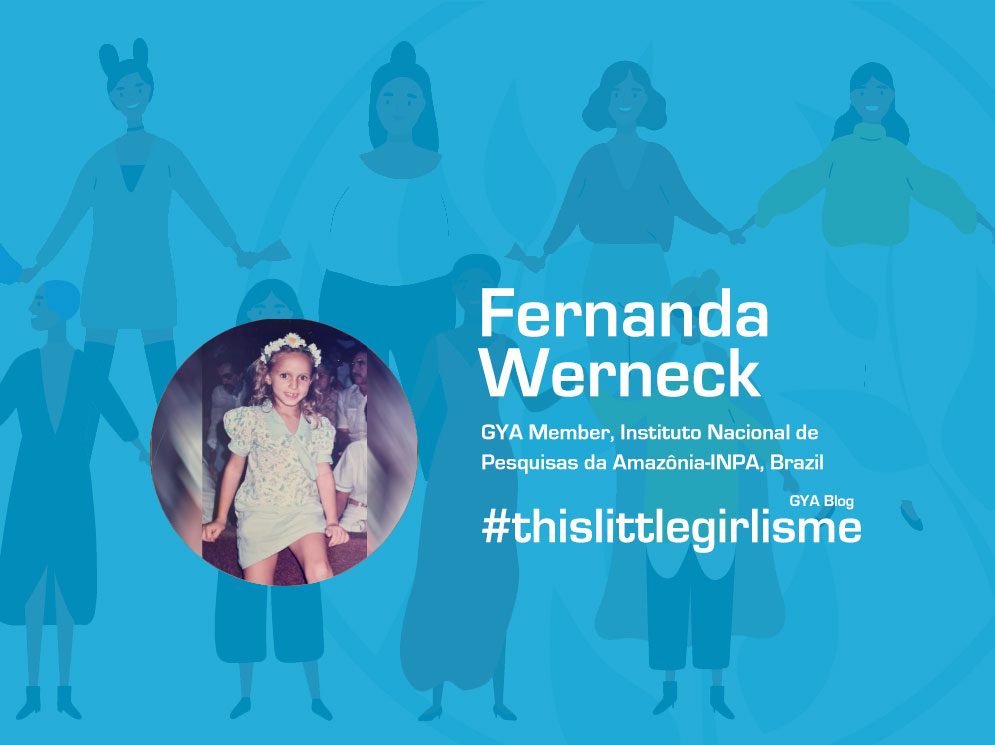Although I wasn’t necessarily sure at first I would become a scientist, I kind of always knew that through knowledge acquisition I could empower my voice and could help other girls and women do the same.
I am from central Brazil, and some of my fondest childhood memories are playing outdoors in areas of the savannas and natural parks in the Brasilia region. These opportunities to play outdoors and take trips to natural places or rural regions, either for leisure or during school activities, certainly served to sharpen my interest in nature and environmental issues and contributed to my future decision to become a scientist.
At school times, I have always been fascinated by various topics within Biology, especially biodiversity and evolution, so a degree in Biological Sciences came as a very natural decision.
I chose a scientific career for the unique possibility of being able to study and learn continuously about various subjects that interest and challenge me so much. In addition, I like to contribute to the dissemination of scientific knowledge through research, education and mentoring of future scientists.
Although it takes a lot of dedication and many challenges to face, a scientific career can be especially rewarding. The freedom to choose our research topics, develop critical thinking and contribute to the generation of knowledge are aspects that make it a very stimulating career. One of my favorite parts of my job is being able to be close to nature during fieldwork and engage a generation of future scientists on environmental issues to preserve our biodiversity and natural ecosystems.
After lots of hard work and many cultural and academic experiences in my home country and abroad, I became a Brazilian biodiversity scientist, currently living and working at the heart of the Amazonian rainforest, the most megadiverse region on Earth. I am a titular researcher at the National Institute of Amazonian Research (INPA), living in the Amazonas region where I investigate the origins and future of Neotropical biodiversity and the impacts of climate change on the adaptation and evolution of the Brazilian amphibian and reptile fauna of the Amazonian rainforest and the Cerrado savanna, always focused on the long-term biodiversity conservation.
To all girls and women that aim for a career in science, I would advise them to pursue their aspirations and dreams, and not to conform to preconceptions that a given area or function is better performed by men or women. Women in science (and everywhere else) can achieve and accomplish so much, and our planet and biological diversity needs more and more of us!
